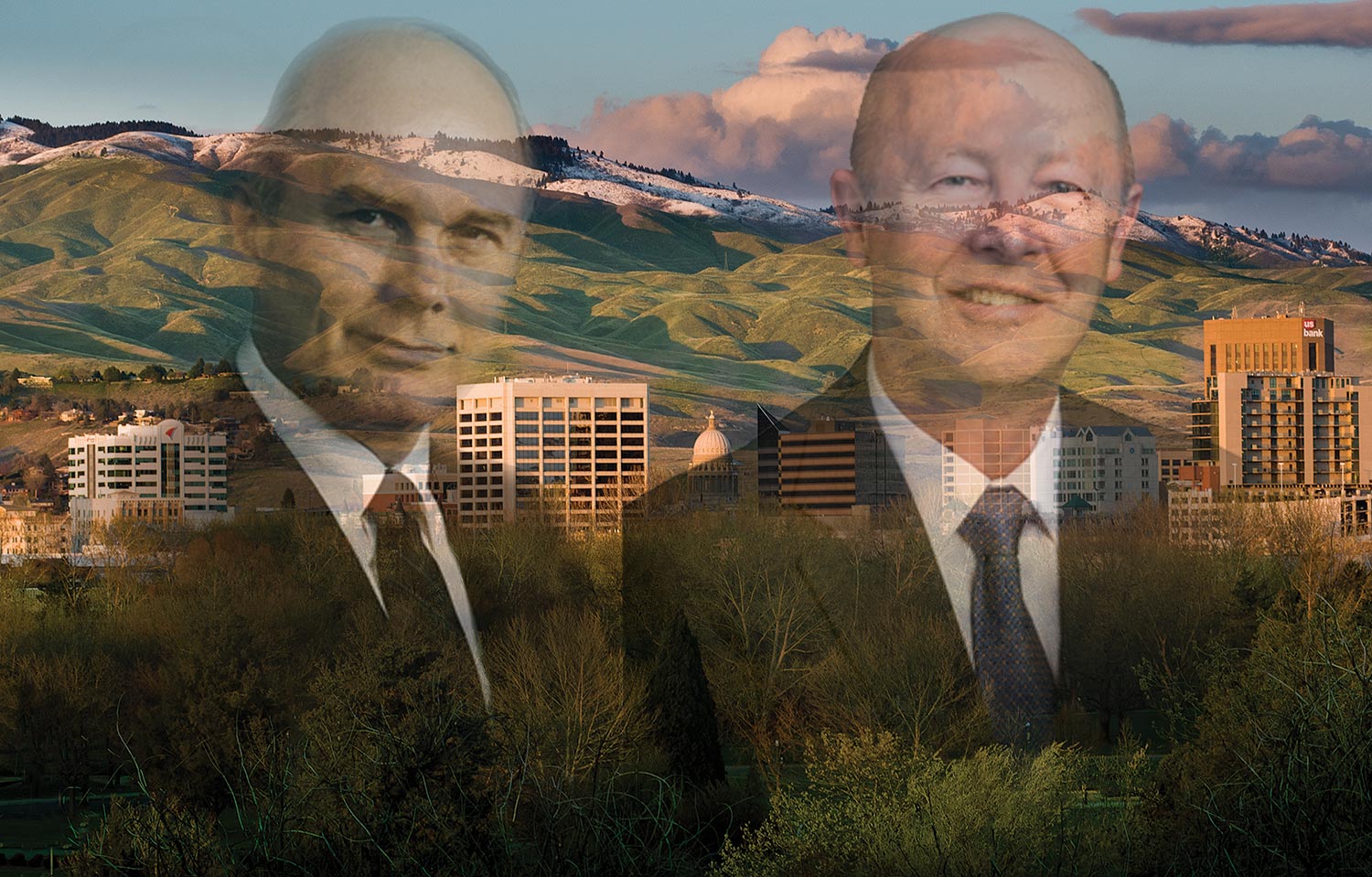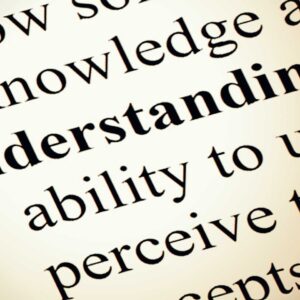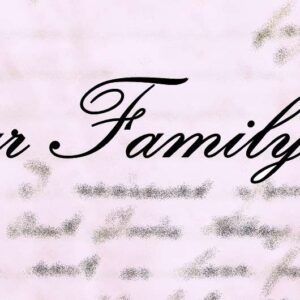On June 13th, Apostle Oaks and Historian Turley gave a fireside at my stake in Idaho “to answer some faithful questions and to minister to some disabling doubts.”
In this fireside, the couple responded to several questions that are most relevant to those that agree with Denver Snuffer and Rock Waterman. In my view, that is that today’s church has strayed from many of the key concepts taught by Joseph Smith. Apparently there is a decent group in the Boise/Meridian/Eagle/Star area that ascribe to that view, and this fireside seems to be an attempt to protect the active members from those ideas.
I was very underwhelmed by the responses given by Oaks and Turley — below I’m including some of their statements and my thoughts on their words. For the full audio, go listen to the Mormon Stories bonus episode, or read the transcript.
Oaks starts the fireside explaining how to know if someone is “on the Lord’s side:”
“In determining on who’s on the Lord’s side on these latter-days, there are two major questions. First, for most non-Mormons, and for some Mormons, the key question is how they feel about Joseph Smith and the Book of Mormon. For most Mormons, the key question on who’s on the Lord’s side is how they feel about the church’s current prophetic leadership. If those feelings are sufficiently negative, they take members into what we call apostasy.”
I don’t believe that many active members base their testimony on “how they feel about the church’s current prophetic leadership.” The current leaders are not what bring in the converts. In fact, I remember of at least one investigator during my mission that loved everything we taught until we provided him with a video of the church leaders bearing their testimonies. He said it was not at all what he expected from prophets and apostles, it was very disappointing, and he didn’t want to continue toward baptism.
Still, I completely understand Oaks’s statement, and it is accurate. There have been and there are many other sects of Mormonism that also accept Joseph Smith, Jr. as the restoring prophet and accept the Book of Mormon. What makes the LDS church unique from the others is the set of people leading since Brigham Young to today. If you accept them and their teachings, then you are bound to the authority dependency that the LDS church requires. The church clearly places the ordinances and priesthood authority between the members and Christ, in that Christ is unable to save members unless you have taken all the right steps in “His” church.
Here are my top 10 problematic statements of Oaks and Turley from this fireside:
- Turley: “I have a doctorate level of education, and I write books. I have computers to help me, I have a staff to assist me, and, with all of that, it still takes numerous drafts and often several years for me to write a significant book. Now realize this: The Book of Mormon, essentially as we have it today, was dictated by the prophet Joseph Smith, a man with perhaps one year of formal education, in just a single draft over a period of less than 90 days. Brothers and Sisters, I don’t care how smart you are, I don’t care how much education you have or how good you are as a writer. I defy anyone to sit down and, in just one draft, dictate in a period of ninety days or less, a book of the power and complexity of the Book of Mormon.”
–I wavered on including this — it is such an old argument that has been argued ad nauseam. Saying he had 90 days is absurd. He had much more like 5 years to develop the story. See MormonThink’s explanation of this. Also see #4 below. - Oaks: “[T]he idea that the established Prophet has strayed and needs to be replaced is an idea Satan has planted in the minds of apostates from the very beginning. For example, at the time of Christ, the Savior was challenged by those who claimed allegiance to Abraham and Moses using the teachings of prophets past to criticize the Lord himself.”
–Oaks is arguing that a newer prophet has no need to be consistent with the teachings of any prior prophets. For example, Brigham Young taught “Blood Atonement” as official doctrine and or course that polygamy was required to become a god — there are many other examples of conflicting teachings between prophets. Having changing doctrines and a teaching that the current Prophet “cannot lead us astray” are not compatible. One of the prophets must be wrong, otherwise God’s laws are not unchanging. - Oaks: “The so-called ‘new prophet’ may pursue his or her correcting mission by a variety of means; organizing a new church, advocating a change of doctrine, or opposing some church policy. We have seen all of these tactics and many more in our lifetime. The content of the new message may be more than what is true and correct, or it may be less. But it is always: ‘I have a better way than the Lord’s current leaders.’”
–These references are describing Denver Snuffer, Kate Kelly, and John Dehlin. Each is elevated, beyond what they claim to be, to being a “false prophet” by Oaks. I am certain at least that Kate and John do not claim any sort of prophecy. Oaks is unfairly painting them as usurpers rather than what their actions portrayed: expressing discontent from within the prescribed order and lines of authority (until excommunicated). - Oaks: “Such questions, questions we call them, are asked with the real intent of better understanding and more fully obeying the will of the Lord.” Turley: “One difference between questions asked in faith and doubts is that questions lead to faith and to revelation whereas doubts lead to disobedience, which in turn renders people less able to receive revelation, or in other words, doubt is darkness. Questions asked in faith lead to light.”
–This is so arbitrary and just wrong. I personally set out investigating issues in order to “save” a friend of mine who had apostatized. My questions were completely in order to obtain a “better understanding” and “more fully obey the will of the Lord.” Yet, as I diligently sought answers, I began to doubt. It was not because of any disobedience — it was because there are serious issues. I understand why Oaks and Turley state “doubts lead to disobedience” and “doubt is darkness.” It categorizes those who doubt as unworthy and as the “others” that cannot be trusted. It makes those that feel such feelings as doubt and uncertainty to define such feelings as evil and avoid them at all cost. - Turley: “The previous year, when the 116 pages disappeared, Joseph learned the lesson that all of us with computers learn, which is back-up, back-up, back-up.”
While this was one of Turley’s more amusing quips, it highlights the just how ludicrous the LDS narrative is regarding the lost pages (see the South Park “reenactment”). Joseph, of course, claimed to have the “back-up” of the 116 lost pages in the golden plates. The idea of a conspiracy is nonsense — being able to re-dictate the 116 pages would have reinforced Joseph’s position as translator, not weakened it. - Oaks: “The first answer to this claim is that modern apostles are called to be witnesses of the name of Christ in all the world, Doctrine and Covenants 107:23. This is not to witness of a personal manifestation. To witness of the name is to witness of the plan, the work, or mission such as the atonement and the authority or priesthood of the Lord Jesus Christ, which an apostle who holds the keys is uniquely responsible to do.”
–I found this to be quite the statement to make… Oaks has essentially differentiated “modern” from “ancient” apostles, which is in contrary to Article of Faith 6. Still, this distinction of “name of Christ” rather than of “Christ” is also very interesting. There are many opinions contrary to Oaks’s, even on LDS.org in the Bible Dictionary and the Apostle Testimonies, that apostles are, by definition “Special Witnesses of Christ,” and must see Christ’s body, resurrected. Without this special witness, apostles have no stronger testimony than any member, which is exactly what Oaks goes on to say after this quote — without the special witness, there is no purpose to the apostolic calling. - Turley: “Joseph Smith’s family was literate, but it was largely a family of oral tradition. […] This awkward first journal entry of Joseph Smith was written three and a half years after Joseph completed the translation of the Book of Mormon. Contrast Joseph the man, writing this journal entry, to Joseph the seer, dictating the Book of Mormon. With the 1832 journal entry, Joseph struggled to write a single page of text. But with the 1829 Book of Mormon manuscript, Joseph rapidly dictated what became a 588 page printed book in a single draft over a period of less than 90 days. The only way that was possible, Brothers and Sisters, is in the way he said he did it, which is by the gift and power of God.”
–This is so high on my list because Turley is pointing out the key difference — the Smith’s were a family of “oral tradition.” Of course Joseph would be able to dictate a story with immensely more ease than writing it himself. His comparison is ridiculous. That Turley does not see this obvious point and even uses it as evidence in favor of the LDS narrative shows him to either be deceitful or willfully ignorant. - Turley: “We read in the Book of Mormon that plain and precious truths would be removed from the Bible. Here [Luke 22:43–44, regarding Christ sweating blood] is an instance in which some of the early manuscripts don’t have those verses in them. Now some scholars will look at the various manuscripts and say, ‘well, if some manuscripts have these verses in them and some do not, these verses must be questionable.’ And so they read these verses as a C‑level passage rather than as an A‑level passage. In other words, they cast doubt on them. But we, Brothers and Sisters, have another testament of Jesus Christ. […] The Book of Mormon confirms the authenticity of important New Testament details about the atonement of Jesus Christ, the key event in all of human history. This passage and a similar one in section 19 of the Doctrine and Covenants serve as second and third witnesses to the atonement of Jesus Christ that we covenant each week to remember as we participate in the ordinance of the sacrament.”
–Once again, Turley is presenting evidence against the Book of Mormon and the Church as if it were evidence in favor of the Church. Christ sweating as it were blood was not removed from the Bible, it was added many years after the fact. See wikipedia’s article on it, Here’s one of the various quotes on it from there: Bruce M. Metzger (2005): “These verses are absent from some of the oldest and best witnesses, including the majority of the Alexandrian manuscripts. It is striking to note that the earliest witnesses attesting the verses are three Church fathers – Justin, Irenaeus, and Hippolytus – each of whom uses the verses in order to counter Christological views that maintained that Jesus was not a full human who experienced the full range of human sufferings. It may well be that the verses were added to the text for just this reason, in opposition to those who held to a docetic Christology”. Turley’s point is strong evidence that the Book of Mormon is completely dependent on the King James bible — and is not from an ancient, unadulterated document. - Turley: “One claim that we sometimes hear is that the church is no longer the church that was restored to the earth by Prophet Joseph. That it fell into apostasy and that the priesthood keys were not passed to Brigham Young.” Oaks: “Answer– then who held them? If there are no priesthood keys then the authority of the priesthood cannot be used upon the earth.”
–Oaks has to make make fun of this point, because he doesn’t have really any other angle. The idea that the twelve apostles had all the keys of the restoration was a post hoc development. See wikipedia’s “Succession crisis.” When Brigham Young heard about Smith’s death while serving a mission in Boston, his first reaction was to ask himself “whether Joseph had taken the keys of the kingdom with him from the earth.” Even assuming the keys were real and passed on, who were they passed on to? D&C 43:3–7 states that Joseph Smith, Jr. needed to appoint his successor. This was an important issue to the early Saints, and it was widely accepted that Joseph Smith appointed one of his sons to succeed him. Brigham Young was in agreement with it, that he and the twelve were essentially just guardians of the church under the premise “that young Joseph would eventually take his father’s place.” Later, with the Saints established in Utah, Brigham decided he should be the leader instead of the rightfully appointed. - Oaks: “[W]hile some early apostles and other members of the church have had the sublime spiritual experience of seeing the Savior and some have made a public record of this, in the circumstances of today we are counseled not to speak of our most sacred spiritual experiences, otherwise with modern technology that can broadcast something all over the world, a remark made in a sacred and a private setting can be said abroad in violation of the Savior’s commandment not to cast our pearls before swine.”
–I’ve listed this as my #1, not because it is anything new — we have heard them say such things before. It is because of the sheer brazenness of the statement. Similar to what we discussed with #5, the point of apostles is to be witnesses, to go and tell everyone that will listen their spiritual experiences that are unique to them as the living apostles on the earth. Modern technology makes that job much more efficient, and should be harnessed to spread their spiritual experiences in order to reach the greatest number possible. The point of the New Testament is to share the sacred experiences of the apostles to all the world. Having living apostles that do not share their special witness is nonsensical. This is a weak excuse to cover up the fact that they do not have the same type of spiritual experiences of the leaders of the past. By abiding by this advice, they can continue to insinuate of such experiences without outright lying. It is still dishonest and not Christlike. They get to cover their rear, while also calling all the rest of the world swine, so I suppose that’s a win-win in their book.
Do you agree with my ranking? Let me know in the comments!




[…] But to be fair, there is a possibility that they have indeed seen Jesus Christ. The problem is that if they have, we would never know it. An experience like that would fall under what Church leaders have decided is too sacred of an experience to share. This is odd considering that these men are, according to the Doctrine and Covenants, “special witnesses”. But because these implied experiences are sacred, not secret, we will never know if these men are actually apostles. Which is a bit ironic, considering what made the original apostles apostles was their being witnesses to Jesus Christ. So, as Mormonism so often does, it redefines words and redraws the lines. When Elder Ballard said at a regional conference today that he is an apostle and bears a witness like Paul that Jesus Christ is resurrected, what he is actually saying is that he, like Paul, has the title of apostle and that he, like Paul and anyone else, has a spiritual witness of Jesus Christ. Because, like Elder Oaks said in Boise, being an apostle doesn’t really mean seeing Jesus. […]
What Mormon teach about the birth of a handicapped Child and minorities especially in third world countries “This privilege of obtaining a mortal body on this earth is seemingly so priceless that those in the spirit world, even though unfaithful or not valient, were undoubtedly permitted to take mortal bodies although under penalty of racial or physical or nationalistic limitations.…” (Decisions for Successful Living pp 164–165) TLDP: 497 “There is no truth more plainly taught in the Gospel than that our condition in the next world will depend upon the kind of lives we live here. …Is it not just as reasonable to suppose that the conditions in which we now live have been determined by the kind of lives we lived in the pre-existent world of spirits? That the apostles understood this principle is indicated by their question to the Master when the man who was blind from his birth was healed of his blindness, ‘Master, who did sin, this man or his parents that he was born blind?’ (John 9:2.) Now perhaps you will have a partial answer to some of your questions as to why, if God is a just Father, that some of his children are born of an enlightened race and in a time when the Gospel is upon the earth, while others are born of a heathen parentage in a benighted, backward country; and still others are born to parents who have the mark of a black skin with which the seed of Cain were… Read more »
Great list! One editorial note, following the #10 quote, the expression should be “ad nauseam.” Thanks for condensing an otherwise boring and way too long fireside.
Thanks! I specifically remember having “ad nauseam” so I’ll blame WordPress’s spell check. Thanks for calling it out — it should now be fixed.
I like how you put this together as it gave me more insight and perspective into what seems like one giant mess! I especially liked your #1. So spot on! “Having living apostles that do not share their special witness is nonsensical. …”
Thanks! It is great to hear you liked the list!